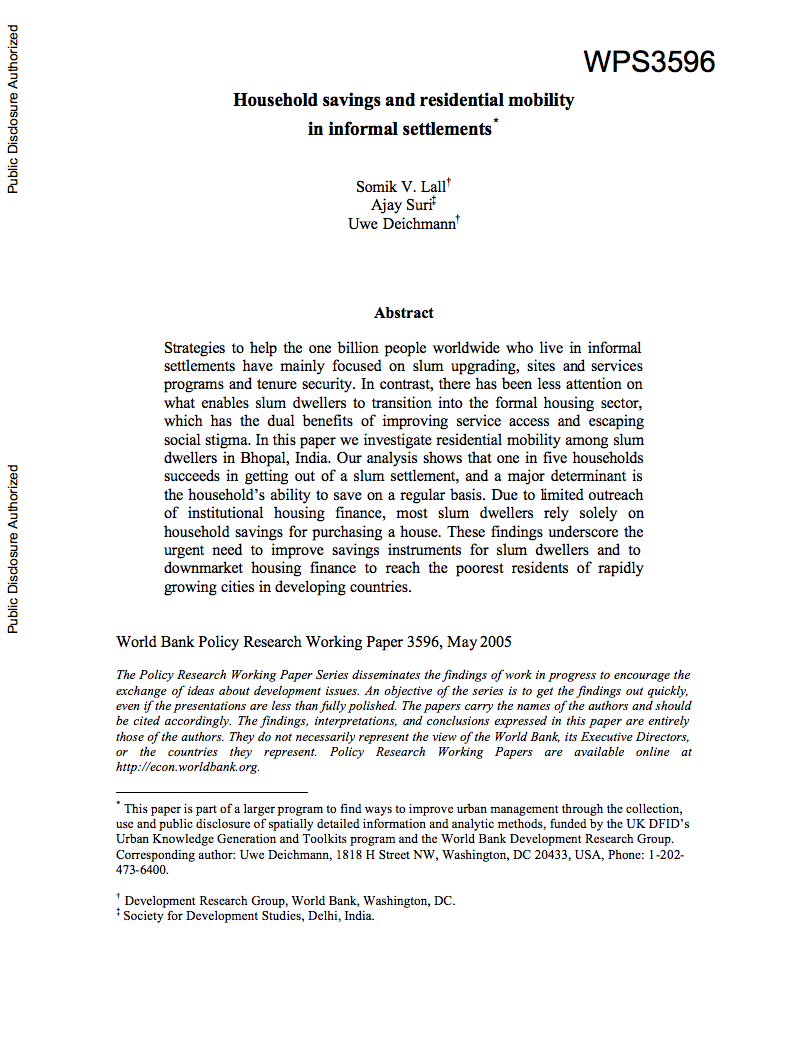The World Bank is a vital source of financial and technical assistance to developing countries around the world. We are not a bank in the ordinary sense but a unique partnership to reduce poverty and support development. The World Bank Group has two ambitious goals: End extreme poverty within a generation and boost shared prosperity.
- To end extreme poverty, the Bank's goal is to decrease the percentage of people living on less than $1.25 a day to no more than 3% by 2030.
- To promote shared prosperity, the goal is to promote income growth of the bottom 40% of the population in each country.
The World Bank Group comprises five institutions managed by their member countries.
The World Bank Group and Land: Working to protect the rights of existing land users and to help secure benefits for smallholder farmers
The World Bank (IBRD and IDA) interacts primarily with governments to increase agricultural productivity, strengthen land tenure policies and improve land governance. More than 90% of the World Bank’s agriculture portfolio focuses on the productivity and access to markets by small holder farmers. Ten percent of our projects focus on the governance of land tenure.
Similarly, investments by the International Finance Corporation (IFC), the World Bank Group’s private sector arm, including those in larger scale enterprises, overwhelmingly support smallholder farmers through improved access to finance, inputs and markets, and as direct suppliers. IFC invests in environmentally and socially sustainable private enterprises in all parts of the value chain (inputs such as irrigation and fertilizers, primary production, processing, transport and storage, traders, and risk management facilities including weather/crop insurance, warehouse financing, etc
For more information, visit the World Bank Group and land and food security (https://www.worldbank.org/en/topic/agriculture/brief/land-and-food-security1
Resources
Displaying 3821 - 3825 of 4906Tunisia : Understanding Successful Socioeconomic Development, A Joint World Bank–Islamic Development Bank Evaluation of Assistance
Tunisia has successfully shifted from
resource-based exports dominated by oil and gas to
manufactures and services. The economy is now driven mainly
by textile, electrical, mechanical, and food processing
exports; tourism and related activities; and production of
olives and cereals. Real Gross Domestic Product (GDP) growth
has been rising consistently, increasing from 3 percent
annually over 1985-90 to more than 5 percent annually over
Mainstreaming Biodiversity in Production Landscapes
This volume contributes to broadening
the understanding and application of the concept of
mainstreaming biodiversity. It captures the inputs to, and
findings of an international workshop held in Cape Town,
South Africa, in September 2004 on Mainstreaming
Biodiversity in Production Landscapes and Sectors. The aims
of the workshop were to: determine an operational definition
of the concept of mainstreaming biodiversity in production
Beyond the Numbers : Understanding the Institutions for Monitoring Poverty Reduction Strategies
This volume provides lessons on the
design and functioning of such monitoring systems, based on
the experience of twelve Poverty Reduction Strategy (PRS)
countries (Albania, Bolivia, Guyana, Honduras, the Kyrgyz
Republic, Malawi, Mali, Mauritania, Nicaragua, Niger,
Tanzania, and Uganda). The focus is on the institutional
arrangements of PRS monitoring systems - the rules and
processes which bring the various actors and monitoring
Institutional and Policy Analysis of River Basin Management : The Jaguaribe River Basin, Ceará, Brazil
The authors describe and analyze water resources reform and decentralization of river basin management in the state of Ceara, Northeast Brazil, the poorest part of the country. The Jaguaribe river basin is located entirely within the state of Ceara. With a drainage area of 72,560 square kilometers, it covers almost half of the state's territory. The basin has 80 municipalities and more than 2 million people, about half rural and half urban, in primarily small towns, representing about a third of Ceara's population.
Household Savings and Residential Mobility in Informal Settlements
Strategies to help the one billion people worldwide who live in informal settlements have mainly focused on slum upgrading, sites and services programs, and tenure security. In contrast, there has been less attention on what enables slum dwellers to transition into the formal housing sector, which has the dual benefits of improving service access and escaping social stigma. In this paper the authors investigate residential mobility among slum dwellers in Bhopal, India.







